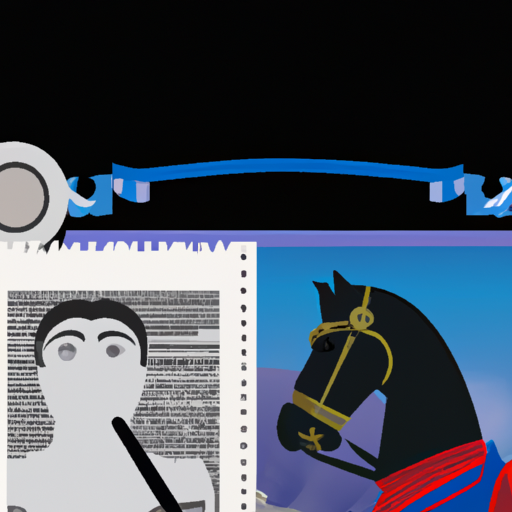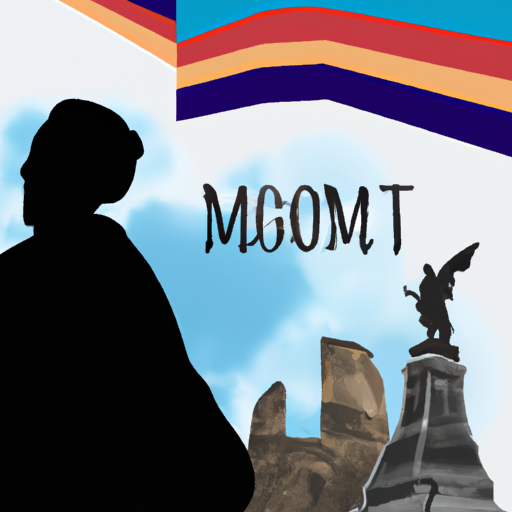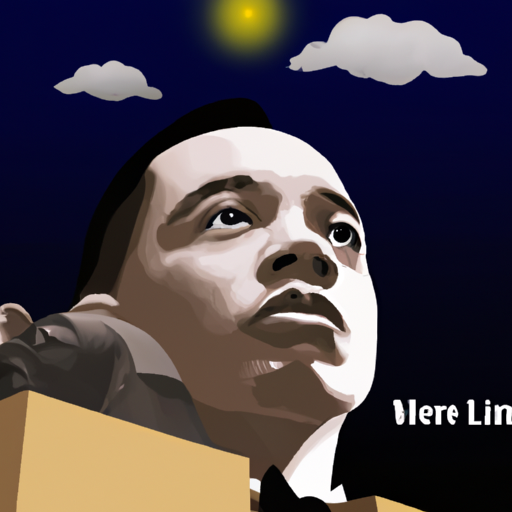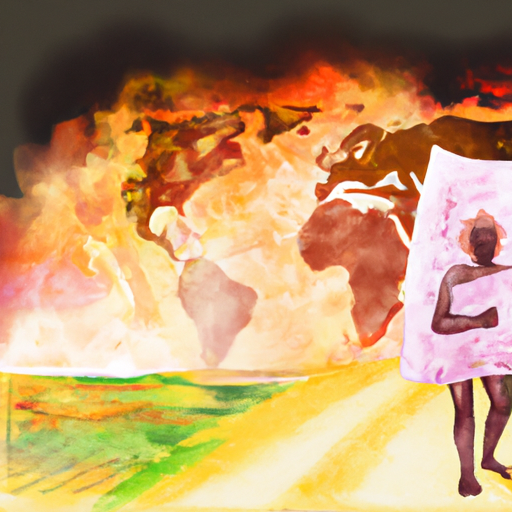A History of the Most Powerful Gods
Unearth the past of deities to discover who reigns supreme! Delve into the unknown and traverse through time to uncover the answer. Uncovering the truth may prove to be a daunting task, yet one that could potentially yield some remarkable results. Who will rise above all others? A journey awaits you, are you brave enough to take it?

Journey with us to the depths of time, and uncover the secrets of our past. Unearth the myths and legends of deities from around the world. Who was revered by their followers? What did they stand for? Explore these powerful figures from Greek gods to Hindu goddesses, and gain a deeper understanding of their place in history. Delve into our history and discover who reigned supreme!
.
Introduction

The query of who can claim the title of ‘the most powerful god’ is one that has been subject to much deliberation and dispute over the years. Depending on which religion or culture is being discussed, different deities may be viewed as more influential than others. In Greek mythology, Zeus was said to be the supreme ruler of all gods, while in Hinduism Lord Shiva is seen as a powerful deity. Christianity holds that God is omnipotent.
– Historical Accounts of the Most Powerful Gods
The might of the gods has been a source of wonder since time immemorial. From the ancient Greeks to the Norse and beyond, many cultures have had their own pantheon of deities that were revered and feared. Let us explore some of the most powerful gods from different mythologies throughout history.
In Greek mythology, Zeus was thought to be one of the most dominant gods. He commanded authority over weather, justice, law, fate, and time. His brother Poseidon was also mighty, governing the seas and its creatures. Athena was known for her wisdom in battle while Aphrodite was renowned for her beauty and love-related powers.
In Norse mythology, Odin is regarded as one of the most influential gods. He had dominion over war, magic, knowledge, poetry, death and divination. Thor – Odin’s son – wielded his famous hammer Mjölnir which could cause thunderstorms when thrown into the sky. Freya was another essential deity in Norse mythology who held sway over fertility, love and beauty while Loki was infamous for being a trickster god who often caused chaos with his mischievous antics.
Hinduism boasts several major gods that are seen as incredibly powerful including Brahma (the creator), Vishnu (the preserver), Shiva (the destroyer) and Ganesh (the remover of obstacles). Each has their own unique set of powers that are used to maintain balance in the universe.
Throughout history there have always been powerful gods that have been respected by those who believe in them. It is captivating to look back through time to see how these deities have been viewed by different societies across eras!
– Ancient Myths and Legends of the Most Powerful Gods
For millennia, tales of awe-inspiring gods and goddesses have held sway over the imaginations of people across the globe. From Egypt to Greece, Rome, and beyond, these stories of deities with remarkable strength and power have captivated audiences. These figures were said to possess the ability to shape their environment or even control fate itself.
Take Zeus in Greek mythology for instance; he is depicted as the king of the gods who commands lightning bolts as a weapon and reigns from atop Mount Olympus. Similarly, Ra in Egyptian mythology is portrayed as a sun god who created the entire universe by his own might and was believed to be responsible for all life on earth. Odin from Norse mythology is also seen as a wise ruler who gave up an eye for knowledge so that he could protect his people from harm.
These are just some examples of how powerful gods have been represented in mythological history. Each culture has its own unique pantheon filled with characters that have become beloved symbols in literature and art throughout time. Whether through stories or artwork, these myths remain timeless reminders of our deep fascination with the divine forces that shape our world.
– The Evolution of Beliefs in the Most Powerful Gods
Throughout the ages, ideas about powerful gods have been in a state of flux. In earlier eras, these deities were often connected to the forces of nature, such as Zeus in Ancient Greece who was thought to wield lightning bolts, Odin in Norse mythology whose power extended to storms and death, and Indra in Hinduism who ruled over thunder and rain.
As time marched on, these beliefs underwent another transformation; deities were no longer just linked with nature but also with morality. The Abrahamic religions – Christianity, Judaism and Islam – all featured a single God who was perceived as having ultimate control over justice and morality. People looked to Him for guidance in their daily lives.
Nowadays, there is a much wider range of beliefs when it comes to powerful gods. Some people still believe in one or more deities that have specific roles and powers while others prefer a secular approach which does not necessarily involve any particular god or set of rules. Rather they may find solace through spirituality or meditation.
The concept of powerful gods has been an integral part of human history for centuries and will likely continue to evolve as society changes over time.
– Comparative Analysis of the Most Powerful Gods Across Cultures
The stories of gods across societies are brimming with accounts of deities of immense power, each with their own special gifts and realms. Examining these gods side by side can give us a peek into the values and convictions of numerous cultures through the ages. In this piece, we’ll investigate some of the most formidable gods from different backgrounds and compare their qualities to get a better idea of how they have impacted our world. We’ll delve into Zeus from Greek mythology, Shiva from Hinduism, Odin from Norse mythology, and more. We’ll go over their beginnings, roles in society, and effect on mankind as a whole. By investigating these figures with a comparative approach, we can gain valuable insight into the annals of civilizations all over the globe.
– Impact of Historical Events on Beliefs in the Most Powerful Gods
Throughout the ages, humankind has been profoundly influenced by its past in regards to the notion of powerful gods. Ancient civilizations had intricate systems of faith and veneration, typically based on their interpretation of natural forces. As societies progressed, their beliefs shifted to mirror their evolving perspectives. In some cases, moments from history have caused individuals to reconsider their convictions regarding these deities; while in others, those same occurrences have reinforced existing religious traditions.
In classical Greece, major events such as the Trojan War and the Battle of Marathon were integral in establishing Zeus as a mighty ruler with influence over human matters. Similarly, after Alexander the Great conquered much of Asia Minor and Egypt, he was then perceived as a deity himself by many cultures across that area.
The Indian religion of Hinduism has likewise been heavily impacted by history. The introduction of Buddhism into India during the 5th century BCE led to an increased focus on personal salvation through meditation and contemplation rather than faith in divine intervention or power. This shift away from traditional Hindu gods was further strengthened when Islamic rulers assumed control over much of southern India during the 11th century CE. The resulting amalgamation between Hinduism and Islam produced novel forms of worship that included aspects from both religions—particularly an emphasis on spiritual devotion instead of reliance on powerful gods for protection or guidance.
Historical events have also left their mark on beliefs about powerful gods in other parts of Africa and Asia. In some cases, these occurrences have caused people to re-evaluate their convictions; for instance, when Europeans colonized Africa during the 19th century CE, numerous African societies began questioning traditional religious practices and looking for alternative routes towards spiritual fulfillment outside customary belief systems. In other instances, historical events have bolstered existing religious customs; for example, some African societies continue to practice ancestor worship despite centuries of foreign rule because it is still a fundamental part of their cultural identity and heritage.
It is evident that history has had a considerable effect on how people view powerful gods across various cultures and regions throughout time. Whether these changes were beneficial or detrimental is largely up for debate; yet there can be no denying that historic episodes have molded our knowledge—and sometimes even our faith—in these entities today.
conclusion

The query of who is the mightiest deity appears to be one that is unanswerable, given the evidence presented in past annals. Through time, numerous gods have been venerated by multiple societies and faiths, all of whom have their own individual strengths and capabilities. Moreover, the idea of power itself can be ambiguous and problematic to measure. Thusly, there appears to be no single answer to this question.
.
Some questions with answers
Q1: Who is the most powerful god in history?
A1: The most powerful god in history is generally considered to be Zeus, the king of all gods in Greek mythology.
Q2: What powers did Zeus possess?
A2: Zeus was said to have control over lightning, thunder and storms, as well as being able to shape-shift and create illusions. He was also known for his wisdom and power of persuasion.
Q3: How did Zeus become the most powerful god?
A3: According to myth, Zeus overthrew his father Cronus and the Titans, who were ruling at that time. This made him the ruler of gods and mortals alike.
Q4: Was there any other god more powerful than Zeus?
A4: In some ancient myths, it was believed that the primordial deities such as Chaos or Gaia were more powerful than Zeus. However, these deities are rarely mentioned in modern mythology.
Q5: What role does Zeus play in today’s world?
A5: Today, Zeus is mostly seen as a symbol of strength and power. He is often used as an example of a great leader or ruler who can bring order out of chaos.




